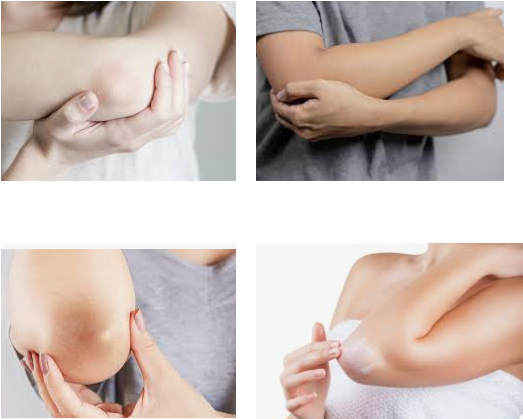Dermatitis can darken (hyperpigmentation) or become lighter (hypopigmentation). However, itchy, dry, and blackened skin conditions in people with dermatitis are generally only temporary and can be cured.
Causes of Itchy, Dry, and Blackened Skin
Itchy, dry, and blackened skin can be caused by various types of dermatitis, namely:
- Atopic dermatitis (eczema)
- Contact dermatitis
- Neurodermatitis
- Nummular dermatitis
- Perioral dermatitis
- Stasis dermatitis
The process of the occurrence of itchy, dry , and blackened skin due to dermatitis is as follows:
Post-inflammatory pigmentation
Dermatitis causes an inflammatory response in the body. This triggers the cell's release of proteins called cytokines, which then stimulate the activity of melanocytes, the melanin-producing cells, which play a role in giving skin its color.
When melanin production increases, the skin with dermatitis becomes darker. However, not everyone with dermatitis will experience itchy, dry and blackened skin.
People with dark skin have more melanin, so they are more prone to hyperpigmentation . This condition can be exacerbated if the skin with dermatitis is exposed to sunlight.
Likenification
This is an itchy, dry, blackened, and thickened skin condition due to frequent scratching. Every time you scratch your skin, more melanin is released, resulting in darker skin.
The skin that is commonly lichenified is the area of the back of the feet, legs, back of the neck, scalp, wrists, arms, and genitals.
How to Overcome Itchy, Dry, and Blackened Skin
If not treated immediately, the skin that is hyperpigmented due to dermatitis will get darker. Although it can go away on its own, it can take up to months for the skin to return to normal.
To speed up healing, there are several ways to treat itchy, dry, and blackened skin, namely:
1. Skin lightening ingredients
You can treat itchy, dry, and blackened skin by using skincare with ingredients that can brighten the skin. These ingredients include licorice , arbutin, kojic acid , azaleic acid , niacinamide, and vitamin C.
However, using products with skin lightening ingredients may not provide instant results. At least, you should use it regularly for at least 3 months.
For itchy, dry, and blackened skin that doesn't improve with treatment at home, your doctor may prescribe creams or suggest other medical treatments.
2. Hydroquinone
Hydroquinone , is a skin lightener that works by reducing melanocytes. Apply hydroquinone 1-2 times a day for 3-6 months, or as directed by your doctor.
The use of hydroquinone should be under the supervision of a doctor. This is because hydroquinone in high concentrations can cause sensitivity to sunlight and can actually make skin discoloration .
3. Tretinoin
Tretinoin is a retinoid drug that works by accelerating the regeneration of skin cells, so that dead skin cells can be replaced with new, healthier skin cells.
According to one study, tretinoin has been shown to help lighten skin in eczema sufferers within 12 weeks, especially in people with medium to dark skin.
Studies also show hydroquinone and tretinoin can work more effectively when used together. However, hydroquinone and tretinoin can sometimes cause irritation or even worsen hyperpigmentation.
To reduce the potential for irritation, a dermatologist will prescribe topical corticosteroids along with hydroquinone and tretinoin.
4. Lasers
There are two types of lasers to treat hyperpigmentation, namely ablation and non-ablation. Laser ablation emits light with a higher intensity than non-ablation.
Laser ablation works by removing the skin layer, so that the dead skin cell layer is replaced with new, healthier skin cells. Meanwhile, the non-ablation laser aims to increase collagen production and tighten the skin, so it can improve the texture of itchy and dry skin.
5. Microdermabrasion
Microdermabrasion is a treatment procedure that uses a technique to exfoliate the top layer of skin. This type of treatment is performed using a stick-shaped device that contains micro-crystals.
When this tool is rubbed into facial skin, dead skin cells will be exfoliated and sucked up by the tool.
If you experience itchy, dry, and blackened skin due to dermatitis, avoid scratching so that your skin condition doesn't get worse. In addition, don't forget to apply moisturizer for dry skin and sunscreen so that your skin is healthier and doesn't get darker.
If the itchy, dry, and blackened skin does not improve, consult a doctor . Everyone's response to dermatitis treatment may be different, so your doctor may recommend another method depending on your skin condition.

